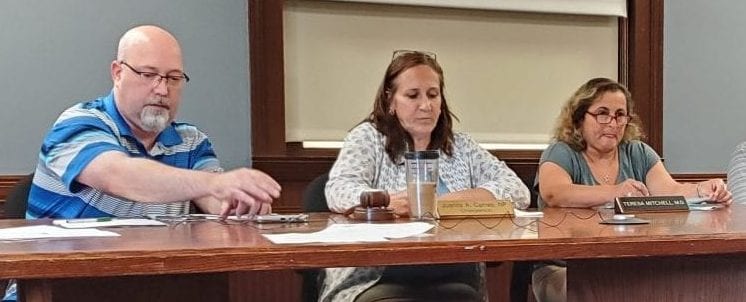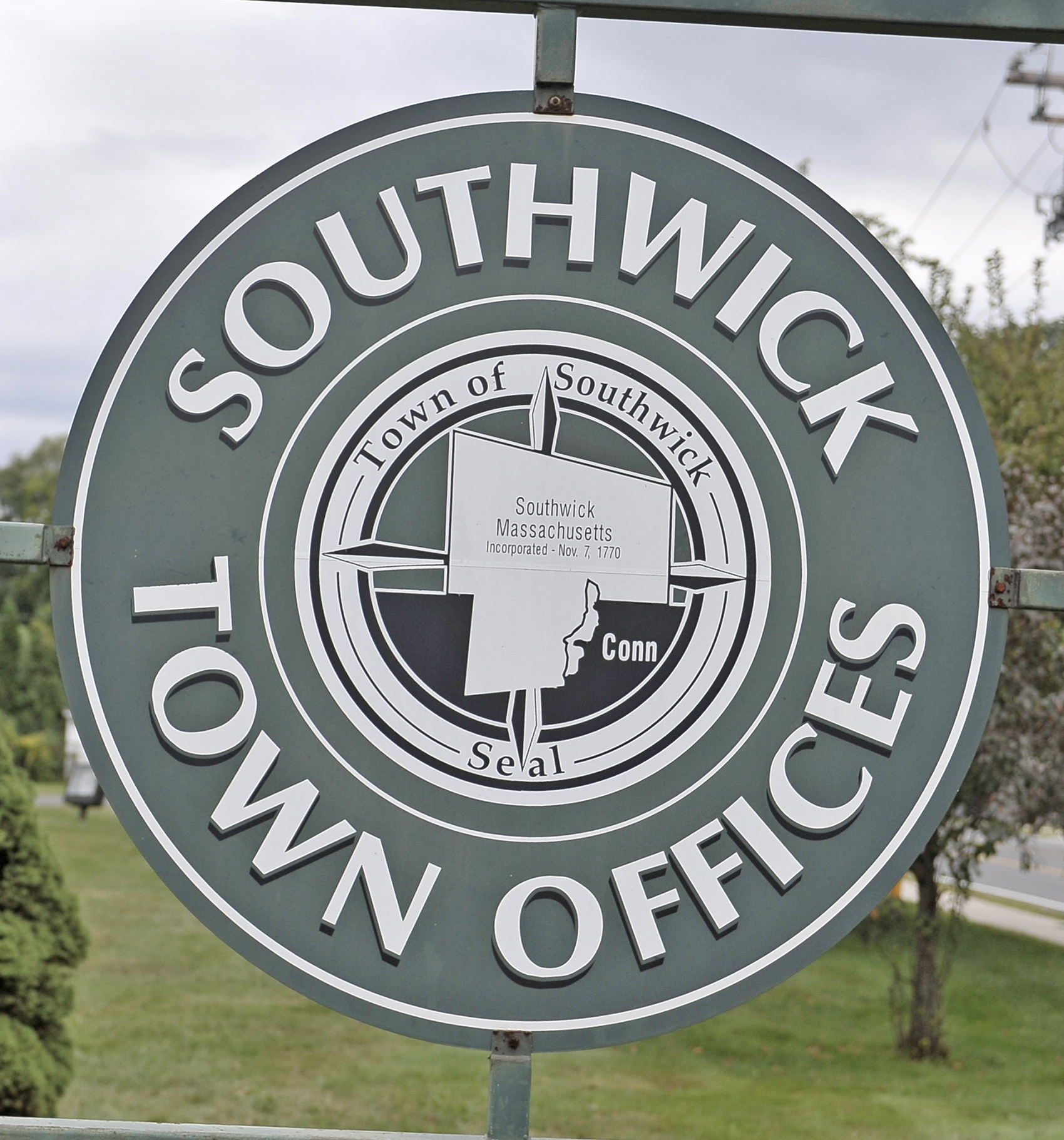
From left: Public Health Director Joseph Rouse, Board of Health Chair Juanita Carnes, and Board Member Dr. Teresa Mitchell. (Photo by Peter Currier)
WESTFIELD- The Board of Health this week discussed imposing greater restrictions on the sale of vaping and e-cigarette products in the city to prevent the products from continuing to get in the hands of kids and teenagers.
Public Health Director Joseph Rouse said that there is a vaping problem in Westfield and beyond.
“Electronic nicotine delivery devices are all over the place. Kids are using them all over the place in the schools,” said Rouse.
He noted that there has been a public push from the City Council, Police Department, and Westfield residents to do something about the vaping problem.
“It’s probably far overdue that we address it because it’s not going away,” said Rouse.
Rouse said he fears that store owners who carry vaping products are not treating them the same as they would more traditional tobacco products like cigarettes or cigars. He noted that he gets the sense that some store owners are not treating vapes like a product meant for those 21 or older.
The board floated the idea of changing how they penalize violations of tobacco sale policy to punish stores that are not complying. Rather than imposing increasing fees for subsequent violations by such stores, they thought about making a single, flat fee that would be the same for each violation, but higher than what the first offense currently would have been.
Right now, the first three offenses by a store selling vapes to underage people are fined as $100, $200, and $300 respectively. The board considered making the flat fine somewhere between $200 and $300. There is a current regulation that revokes the tobacco sale permits for stores that fail four compliance checks in a single calendar year.
Health Inspector Thomas Hilbert said that it is rare that the city can do that many checks on a single store in a year. Instead, he thought of making it so that consecutive failures, regardless of the time scale, could be penalized more heavily. This could include failures during inspections by the Food and Drug Administration.
“We have to decide what we want to do about the sale of non-tobacco items. There are three options,” said Rouse.
The first option was to restrict the sale of such products to “adult only” stores specifically meant to sell them. This would mean vaping products would not be available in convenience stores. Rouse recommended that such a restriction only apply to flavored vape products that are popular with kids, not the unflavored ones targeted at adults trying to quit traditional tobacco.
Along with that option, the board noted that a limit on the number of vape shops that can be in Westfield must be imposed.
The second option was to kick the problem over to the City Council and make it a city ordinance rather than a Board of Health regulation.
The third option was to leave the rules the way they are, which was quickly dismissed by members of the board.
“The other thing you could do beyond those restrictions is prohibit the sale of it. At all,” said Rouse, “No electronic nicotine delivery devices, no flavored tobacco.”
Rouse and the board members agreed that such an option would be difficult and would jeopardize the business owners who have already set up shop specifically selling vape products in the city.
Rouse’s main problem, besides the harm done by vaping itself, is the fact that most products contain nicotine, which the youth using the vapes are getting addicted to.
By the end of the discussion, Rouse and the board were leaning towards restricting the sale of vape products to “adult-only” shops and changing the penalties for shops that are found to not be complying with regulations.
They agreed to come back next month with a draft regulation on the matter.
Peter Currier can be reached at [email protected].





